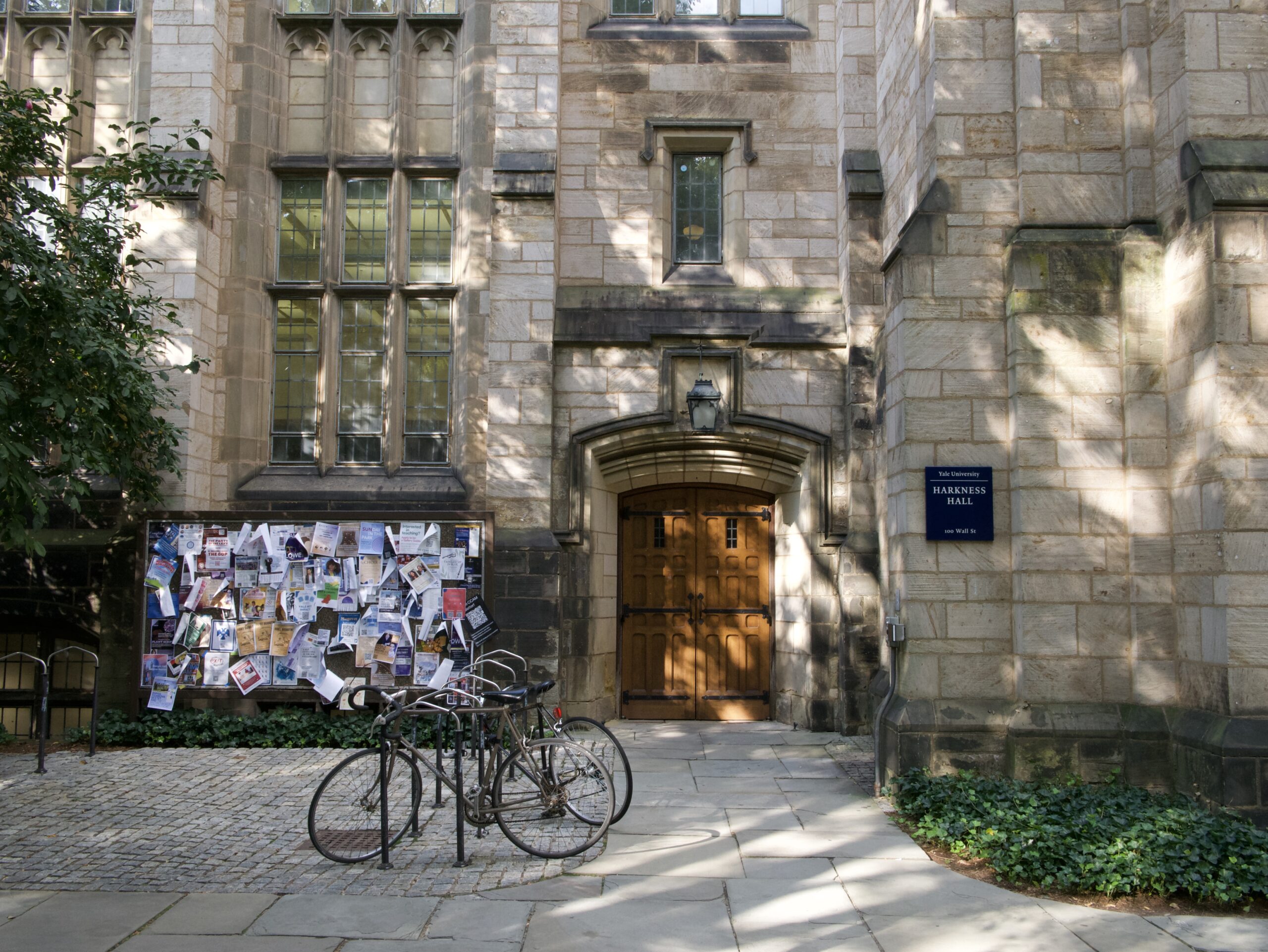History department offering course on trust in higher education
The course will examine historic and contemporary trust in universities as a committee of Yale professors examines declining trust in higher education.

YuLin Zhen, Photography Editor
The history department is offering a course on the public perception of universities in the spring semester.
The class, called “Trust Et Veritas: The Public Legitimacy of Universities,” will be taught at the same time as a committee of professors convened by University President Maurie McInnis prepares a report with recommendations about how to increase trust in universities. Benjamin Bernard ’11, a postdoctoral associate who studies the history of trust in higher education, will teach the course. Bernard is “attached” to the Committee on Trust in Higher Education, a Yale webpage says, but he is not a member.
“We discussed the idea when Dr. Bernard was hired as a postdoctoral associate during the summer,” Beverly Gage ’94, a history professor and co-chair of the committee, wrote in an email to the News. “The course seemed like a great way to take advantage of his deep research and historical background on the issue and to invite undergraduate students to engage in their own explorations.”
In April, McInnis formed the Committee on Trust in Higher Education to examine declining trust in universities after identifying the trend as one of her main priorities. Last week, the committee began hosting listening sessions to solicit commentary from students and staff.
Gage said she was involved in the idea for the “Trust Et Veritas” class, but Bernard wrote the syllabus independently from the committee.
According to a draft syllabus, the course will cover universities from the 13th century to the present day. Bernard said in an interview that the class will try to determine whether the current moment is a unique one in the history of higher education.
“I think history can help us contextualize what we are living through,” Bernard said. “Things that seem shocking in the short term may have many precedents.”
Bernard said the class will also read the committee’s report, which is slated to come out toward the end of the spring semester, the committee previously announced.
Bernard studies and has written extensively about trust in higher education in France. Bernard pointed to France as a place worth studying the history of trust in universities.
“These are complicated relationships. In early 18th-century France, Sciences Po was the center of power that was largely opposed to the monarch,” Bernard said.
According to Bernard, in 18th-century France, critics of higher education capitalized on higher literacy rates and lower prices for printing to reach a wider audience. Bernard drew parallels between the pamphlet culture of the Enlightenment and social media culture today.
Bernard also plans to conduct research to compare how universities respond to authoritarians versus democratic leadership. He said public trust in universities tends to be related to the type of government in power.
Though students in “Trust et Veritas” will consider the future of higher education, Bernard said he does not have any predictions about the future of universities.
“Sometimes when people ask me what history I study, I joke: the past, the things that happened,” Bernard said. “I don’t do the things that didn’t happen and I don’t write about the future. I’m not one to predict.”
Bernard was hesitant to provide his opinions on where universities should go from here, instead preferring to let his students research and form opinions, he said. However, he added that change in higher education comes from both internal and external pressure.
Daniel Magaziner, the history department’s director of undergraduate studies, emphasized the importance of taking the right lessons from the past and applying them to the present.
“My personal opinion is that, carefully wielded, history is a skeleton key that can unlock so many things about the present,” Magaziner wrote in an email to the News.
“Trust et Veritas” is a history departmental seminar, meaning senior and junior history majors will have an advantage in gaining admission.







